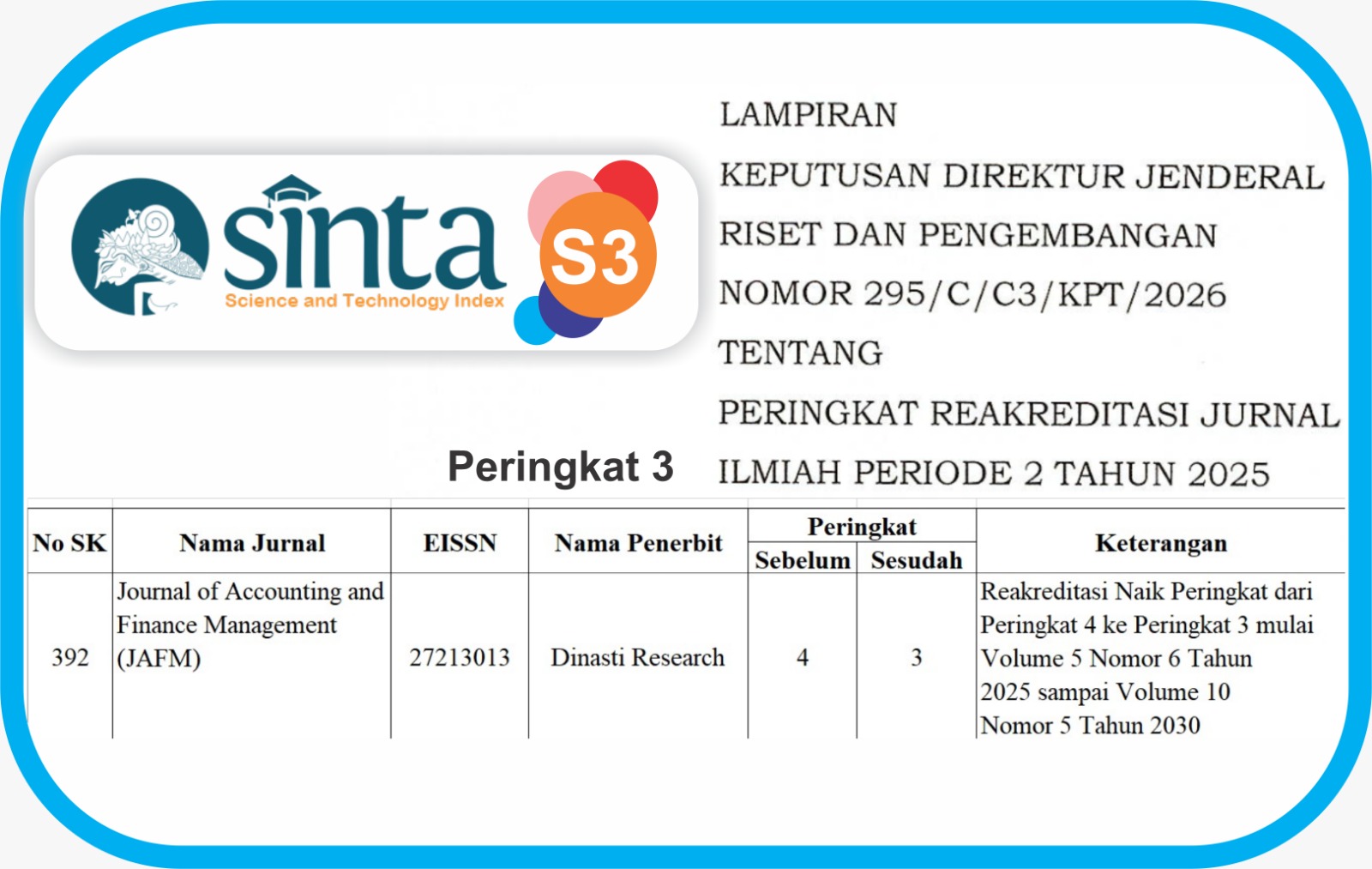Smart Work: Benefit or Cost?
DOI:
https://doi.org/10.38035/jafm.v5i5.1200Keywords:
Smart Work, Empowerment, Job Satisfaction, Performance, EdutechAbstract
This research focuses on the importance of implementing Smart Work and Empowerment in improving job satisfaction and employee performance, especially in companies engaged in technology education. In today's digital era, companies are required to adapt to change and utilize technology to increase productivity. The purpose of this study was to analyze the effect of Smart Work and Empowerment on job satisfaction and employee performance in Edutech companies. The research method used is a quantitative approach with variable measurement consisting of two exogenous variables (Smart Work and Empowerment) and two endogenous variables (Job Satisfaction and Performance). Data was collected through questionnaires distributed to 190 employees. Descriptive analysis and regression analysis were used to test the proposed hypothesis. The results showed that there is an effect of Smart Work and Empowerment can increase job satisfaction. In addition, job satisfaction is also able to improve employee performance. The implementation of Smart Work can increase job satisfaction. While empowerment does not make employee performance increase. So with these results companies in the edutech industry should focus more on developing and implementing smart work policies. Then, companies in the edutech industry must be more active in implementing empowerment strategies. This can be done by giving employees more freedom and authority in making decisions related to their work.
References
Al-Dhaafri, H. S., Al-Swidi, A. K., & Yusoff, R. Z. Bin. (2016). The mediating role of total quality management between the entrepreneurial orientation and the organizational performance. The TQM Journal, 28(1), 89–111.
Bloom, N., Liang, J., Roberts, J., & Ying, Z. J. (2015). Does working from home work? Evidence from a Chinese experiment. The Quarterly Journal of Economics, 130(1), 165–218.
Gajendran, R. S., & Harrison, D. A. (2007). The good, the bad, and the unknown about telecommuting: meta-analysis of psychological mediators and individual consequences. Journal of Applied Psychology, 92(6), 1524.
Hair, J. F., Ringle, C. M., & Sarstedt, M. (2013). Partial least squares structural equation modeling: Rigorous applications, better results and higher acceptance. Long Range Planning, 46(1–2), 1–12.
Inayat, W., & Jahanzeb Khan, M. (2021). A study of job satisfaction and its effect on the performance of employees working in private sector organizations, Peshawar. Education Research International, 2021(1), 1751495.
Karatepe, O. M. (2012). Perceived organizational support, career satisfaction, and performance outcomes: a study of hotel employees in Cameroon. International Journal of Contemporary Hospitality Management, 24(5), 735–752.
Kim, M., & Seo, Y.-W. (2021). A study on the impact of work-life balance and smart work environment on job satisfaction and organizational commitment among employees. The Journal of the Korea Contents Association, 21(3), 505–517.
Ko, E.-J., Kim, A.-H., & Kim, S.-S. (2021). Toward the understanding of the appropriation of ICT-based Smart-work and its impact on performance in organizations. Technological Forecasting and Social Change, 171, 120994.
Krzystofiak, F., & Newman, J. M. (1980). Revisiting Equal Employment Opportunity in the Federal Government: The Case of the EEOC. Public Personnel Management, 9(4), 312–317.
Loan, L. (2020). The influence of organizational commitment on employees’ job performance: The mediating role of job satisfaction. Management Science Letters, 10(14), 3307–3312.
Loonam, J., Eaves, S., Kumar, V., & Parry, G. (2018). Towards digital transformation: Lessons learned from traditional organizations. Strategic Change, 27(2), 101–109.
Luthans, F., & Avolio, B. J. (2009). The “point” of positive organizational behavior. Journal of Organizational Behavior: The International Journal of Industrial, Occupational and Organizational Psychology and Behavior, 30(2), 291–307.
Mathew, J., & Nair, S. (2022). Psychological empowerment and job satisfaction: A meta-analytic review. Vision, 26(4), 431–440.
Rae, K. (2013). How perceptions of empowerment and commitment affect job satisfaction: a study of managerial-level effects. Accounting, Accountability & Performance, 18(1), 35–62.
Rinny, P., Purba, C. B., & Handiman, U. T. (2020). The influence of compensation, job promotion, and job satisfaction on employee performance of Mercubuana University. International Journal of Business Marketing and Management (IJBMM), 5(2), 39–48.
Shareena, P., & Shahid, M. (2020). Work from home during COVID-19: Employees perception and experiences. Global Journal for Research Analysis, 9(5), 1–3.
Veronica, V., & Koto, S. K. (2020). Pengaruh Faktor Anteseden Motivasi, Disiplin, Dan Kesejahteraan Terhadap Kinerja Pegawai. Jurnal Pengembangan Wiraswasta, 22(01), 57–70.
Downloads
Published
How to Cite
Issue
Section
License
Copyright (c) 2024 Sabta Elisa, Rojuaniah Rojuaniah

This work is licensed under a Creative Commons Attribution 4.0 International License.
Authors who publish their manuscripts in this journal agree to the following conditions:
- The copyright on each article belongs to the author(s).
- The author acknowledges that the Journal of Accounting and Finance Management (JAFM) has the right to be the first to publish with a Creative Commons Attribution 4.0 International license (Attribution 4.0 International (CC BY 4.0).
- Authors can submit articles separately, arrange for the non-exclusive distribution of manuscripts that have been published in this journal into other versions (e.g., sent to the author's institutional repository, publication into books, etc.), by acknowledging that the manuscript has been published for the first time in the Journal of Accounting and Finance Management (JAFM).



























